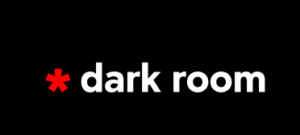Hello, in the final act of Kostas Simitis’ farewell, what happened was exactly what had been evident from the moment his death was announced. Those people, mainly politicians, who made the statements they “had to make” were present at his funeral yesterday. As for the rest, they simply didn’t attend, making it crystal clear who they are and what they politically represent. I am referring mainly to three former prime ministers—George Papandreou, Kostas Karamanlis, and Antonis Samaras—who certainly didn’t… shine through their absence. Instead, they merely reminded everyone of the pettiness, the lack of political ethos, and institutional decency that characterizes them. Even Tsipras would have gone—despite claiming to be ill, a claim no one has a reason to doubt since he did attend Konstantinos Mitsotakis’ funeral. By far, K.M. stole the show yesterday, not just because he attended and spoke at the funeral, but because—if only due to his position—his speech was one of the most talked-about.
Meeting about the disgrace of the insurance companies – What will be announced today
Moving on to current affairs: yesterday afternoon, K.M. chaired a meeting regarding the outrageous situation unfolding with insurance companies in the market. They’ve been imposing insane increases and attempting to eliminate certain contracts (mainly lifetime insurance contracts) because they are no longer profitable for them, leaving loyal long-term clients unprotected. Attending the meeting were relevant ministers Theodorikakos, Georgiadis, and Hatzidakis; the financial overseer Stournaras; the President of the Competition Commission Sarpi; as well as Skertsos, Marinakis, and Mylonakis from the Prime Minister’s office. This morning, Minister Theodorikakos, responding to a related question by Milena Apostolaki in Parliament, will announce the abolition of the IOBE index, which annually adjusts the prices of lifetime insurance contracts. For example, in 2024, the increase these contracts would have seen was around 15%, but this will no longer happen. Under the new regulation, a new index will be created by ELSTAT, which will reflect the annual inflation rate of private health services. These details were confirmed a short while ago when Mr. Theodorikakos made the official announcements.
Major reform in Public Sector disciplinary procedures
Today’s Cabinet meeting has several items on the agenda. One particularly interesting item is the bill being presented by the Minister of Interior, Theodoros Livanios, and Deputy Minister Vivi Charalampogianni, for the overhaul of disciplinary procedures in the Public Sector. Currently, there are over 90 primary disciplinary boards, along with the secondary one, and thousands of cases pending review. Under the new law, a single, unified disciplinary board will be created, staffed by members of the State Legal Council—50 in total when fully operational. I’m told the new disciplinary board will be functional by the end of the year, ensuring that members of the State Legal Council and judges who currently view these boards as side work can dedicate themselves fully to them. The new body will feature three-member or five-member panels, and the State Legal Council members involved will have fixed terms.
Today’s bill on the capital market
Also in today’s Cabinet meeting, K. Hatzidakis will present the bill to strengthen the capital market. Attention is naturally focused on measures related to bank fees, which are expected to be included in the bill, as well as any potential tax measures or incentives—though it seems we shouldn’t anticipate any exciting surprises in that regard. Several technical matters (regulations, etc.) are being addressed. Among other provisions, the bill grants publicly listed companies the option of voluntarily transferring from the Main Market to the Alternative Market to avoid delistings under new liquidity and dispersion rules. The details need to be reviewed thoroughly, as the provisions cover the entire market spectrum (Stock Exchange, oversight, institutional investors, brokers, etc.), as well as new areas such as cryptocurrency oversight. Naturally, it will include measures that have largely flown under the radar. Additionally, the bill incorporates provisions proposed by the Capital Market Commission to align with European or international best practices, such as mechanisms for liquidity management in mutual funds, mystery shopping measures, ESG certification standards, and more.
Aoun and Greece
Yesterday, Joseph Aoun, the former head of Lebanon’s Armed Forces, assumed the presidency of Lebanon with the backing of the United States. A source from Maximos Mansion reminded me that Aoun had previously met Kyriakos Mitsotakis, who was the first Western leader to visit Lebanon after the Hezbollah-Israel ceasefire. He also had a one-on-one meeting with the Chief of the Hellenic National Defense General Staff, Dimitris Choupos. Government officials consider the new president to be a “player” and one of the most reliable figures in this troubled country, with Greece already having an open line of communication with him. The European Union also rushed to welcome his election.
What Piraeus Bank Said at Citi’s Roadshow
Executives from Piraeus Bank, specifically General Director of Business Planning Chrysanthi Berbati and Head of Investor Relations Xenophon Damalas, met with major investment firms yesterday during Citi’s two-day (January 7-8) roadshow in London. Among the attendees were Fidelity, Citigroup, Prudential, Aviva, and Wexford Capital. During their back-to-back meetings, they presented the bank’s 2024 closeout and 2025 prospects. According to information, the bank finished strong in the fourth quarter of 2024, with loan disbursements pushing the total loan portfolio above the €33 billion target, while deposits showed strong momentum thanks to economic growth. Additionally, the NPE ratio dropped below 3%, and capital requirements for Pillar 2 stood at 2.90%. The €1 billion profitability target was achieved despite one-off expenses in Q4, including costs for voluntary exit programs, NPE reduction, and the €25 million cost Piraeus Bank contributed to the school support program undertaken by the four systemic banks. The RoTBV target of 17% for 2024 remained unchanged, while the distribution of 35% of profits as dividends corresponds to a 7% yield. Guidance for 2025 aligns with previous projections, with further updates expected on February 24 during the 2024 results announcement and the updated business plan presentation.
Waste Management in Corfu Goes to GEK TERNA-Mediterranean Consortium
The GEK TERNA group is expanding its already extensive waste management portfolio. According to sources, in a consortium with Mediterranean, it is undertaking the project for Corfu’s waste processing plant, with a budget of €34 million (which could rise to €71.6 million with an optional extension). The project includes the construction of a Waste Processing Unit (WPU) with a total capacity of 35,000 tons. The contract is expected to be signed within the next six months, allowing the island to soon leave behind the disgraceful scenes of garbage mountains that once made international headlines. Corfu could already have had a waste management unit if SYRIZA, shortly after its election victory, hadn’t canceled the tender approved in 2013 under the ND-PASOK-DIMAR government. In any case, the issue now seems to be resolved, with GEK TERNA adding another WPU project. The group has already secured two major PPP contracts worth nearly €450 million in Central Macedonia, manages the Epirus WPU, and oversees the largest waste management PPP project in the country, in the Peloponnese region. It’s worth noting that the waste management activities previously handled by TERNA Energy were excluded from the agreement with Masdar and have been transferred to GEK TERNA.
Goldman Sachs’ Frosty Outlook on Earnings Per Share
The Goldman Sachs report on emerging markets, including Greece, released yesterday by NewMoney, turned out to be an unpleasant surprise. Analysts from the investment giant reiterated their November forecast that in 2025 the General Index will not outperform, settling around 1,475 points. This contrarian view stirred discussions in the market, particularly since most firms are optimistic about the Greek stock market this year. The timing of this forecast also raised eyebrows. One interpretation is that Goldman Sachs aligns with those who believe European and emerging market assets will underperform due to Trump’s election. However, GS hasn’t fully sided with Trump’s camp thus far. Those who delved deeper into the report noticed something equally concerning: the projection that earnings per share (EPS) of listed companies will drop by 4% this year, contrary to the consensus among analysts, who had expected flat EPS at worst. GS has been described as “particularly conservative” regarding Greece. Still, caution is advised for this year, as these estimates come from financial analysts, not fortune-tellers. Let’s not forget that during the 2008 crisis, Goldman Sachs passed its sins onto its clients to save itself.
Titan America Revving Up for Wall Street Listing
The Titan Group’s management is now moving ahead with plans to raise $600 million and float 25% of Titan America shares on the New York Stock Exchange, targeting the first half of February. Citigroup and Goldman Sachs have been tasked with handling the listing of the American subsidiary on Wall Street. These moves suggest Titan America’s valuation will exceed $2 billion, though much will depend on market reactions to the initial government initiatives announced by Donald Trump.
Financial Struggles for Gas Stations
Many fuel stations, especially those burdened with rent and generally high operating expenses, cannot sustain operations with a net profit margin of just 0.2%. The government appears to have decided to extend the profit margin cap announced during the pandemic until April 2025. A recent study by IOBE and an investigation by the Competition Commission revealed that current profit margins, combined with rising wages, raw material costs, rents, and other factors, render legitimate gas stations unsustainable. This situation creates an opening for illicit operators, enticing station owners toward fuel adulteration, tampered pumps, and other illegal practices. Therefore, it’s deemed necessary to differentiate profit margin caps by industry sector (e.g., food, fuel, etc.).
Banking Days at the Stock Exchange
With a return of over +6% in the first sessions of 2025, the Banking Index on the Athens Stock Exchange offers by far the highest performance in the Eurozone, nearly three times the average of banking indices across Europe. Numerous placements and regulatory commitments had kept the banking sector slightly behind in terms of returns. However, this year, dividend yields will be significantly higher, and the profitability prospects of the sector are much clearer. Notably, in the last three trading sessions, over 50% of the market’s total turnover was attributed to the shares of the four systemic banks. For instance, yesterday, a total of 32.1 million shares were traded on the Stock Exchange, of which 24.56 million involved Alpha Bank, Piraeus Bank, National Bank, and Eurobank.
Against the Tide
AKTOR’s capitalization (formerly Intrakat) reached €783.2 million as its share price closed at €4.82 yesterday, rising by +1.47%, despite the ongoing capital increase. The share price for the increase has been set at €4.6. All indications suggest that Masdar’s public proposal for TERNA Energy will officially conclude successfully. This means TERNA Energy will soon exit the FTSE25 Index, paving the way for AKTOR, which aspires to attract the interest of major investment portfolios.
The Virus of Optimism at the Stock Market
Bank shares act as custodians of the positive momentum while leaving room for other stocks to benefit from the wave of optimism currently blowing through our capital market. Shares like ElvalHalkor (+3.23% at €2.235), ADMIE (+3.51% at €2.8), Intracom (+5.31% at €3.1750), Plastics of Thrace (+5.76% at €4.22), and Fourlis (+2.43% at €4.22) seized the opportunity to demonstrate their dynamism with substantial trading activity yesterday. With the help of OTE and Coca-Cola, the General Index closed the session near the day’s high at 1,510.93 points, up +0.3%. Despite the absence of American investors mourning the passing of Jimmy Carter, the transaction value reached €146.61 million, of which €17.5 million were in block trades. Today, the market seems to hold strength, and as a side note, note that the assets under management of mutual funds have surpassed €22 billion, with net inflows of €4.9 billion in 2024.
Prices at the Supermarket
It may not entirely align with the general mood of gloom and poverty cultivated by certain public figures, but the truth is that supermarket prices have shown a clear downward trend over the past seven months. As revealed by the research of the Retail Consumer Goods Research Institute (IELKA), the new leadership of the Ministry of Development has tightened the regulatory framework (e.g., the prohibition of promotional activities during price increases, law 6969/2024) and increased inspections and fines. Additionally, in October, a voluntary initiative to reduce prices on specific products was launched. The fact that offers and discounts have increased in organized retail suggests that these interventions are indeed yielding results.
Yanis (with one “n”) Who Goes with Everything
A few weeks ago, a well-known YouTuber named Coffeezilla published investigative videos exposing Valve’s role. Valve is now a giant in the field of electronic games (gaming, streaming, and e-sports), with a subsidiary company called Counter-Strike Casino. This entire mechanism fuels a massive gambling industry—primarily targeting underage players—worth over $6 billion in gross game revenue (GGR). This industry can pay YouTube influencers more than half a million dollars a month in advertising contracts! Operating without regulation, Valve has publicly committed since 2016 to self-regulate its ecosystem. However, it’s in no hurry, as the stored value of skins today is estimated at $2 to $3 billion. If age restrictions were imposed on players, this value would drastically decrease, if not vanish entirely.
The Greek interest in this case lies in the fact that—while researching Valve’s history—it emerged that for some time (starting in 2012), and before Valve launched the gambling feature for skins in 2013 (which spiked addiction to gaming), the company’s chief economist was none other than our familiar Yanis Varoufakis. What does a chief economist do in an online gaming company? Games like Counter-Strike have in-game economies fueled by real money. Players can pay for in-game items such as new weapons or even outfits. However, Valve’s games often allow players to trade items with one another, meaning an economy is created where users set their own resale values for virtual items.
Buying a Home Becomes a Distant Dream in the U.S.
The famed American Dream hinges on owning a permanent residence. This dream has been slipping away for quite some time. Mortgage rates in the U.S. have now reached 7%, with no expectations of easing despite the intentions of the Federal Reserve. A young couple trying to enter the housing market today faces a daunting mountain of debt.
The average rate for a 30-year fixed mortgage rose to 6.91% on January 2, up from 6.85% the previous week, according to Freddie Mac data. The Mortgage Bankers Association reported an 8-basis-point increase to 6.97% for home loans, the highest rate in the past six months. The high cost of borrowing makes accessing loans more difficult while simultaneously putting pressure on demand.
Ask me anything
Explore related questions





